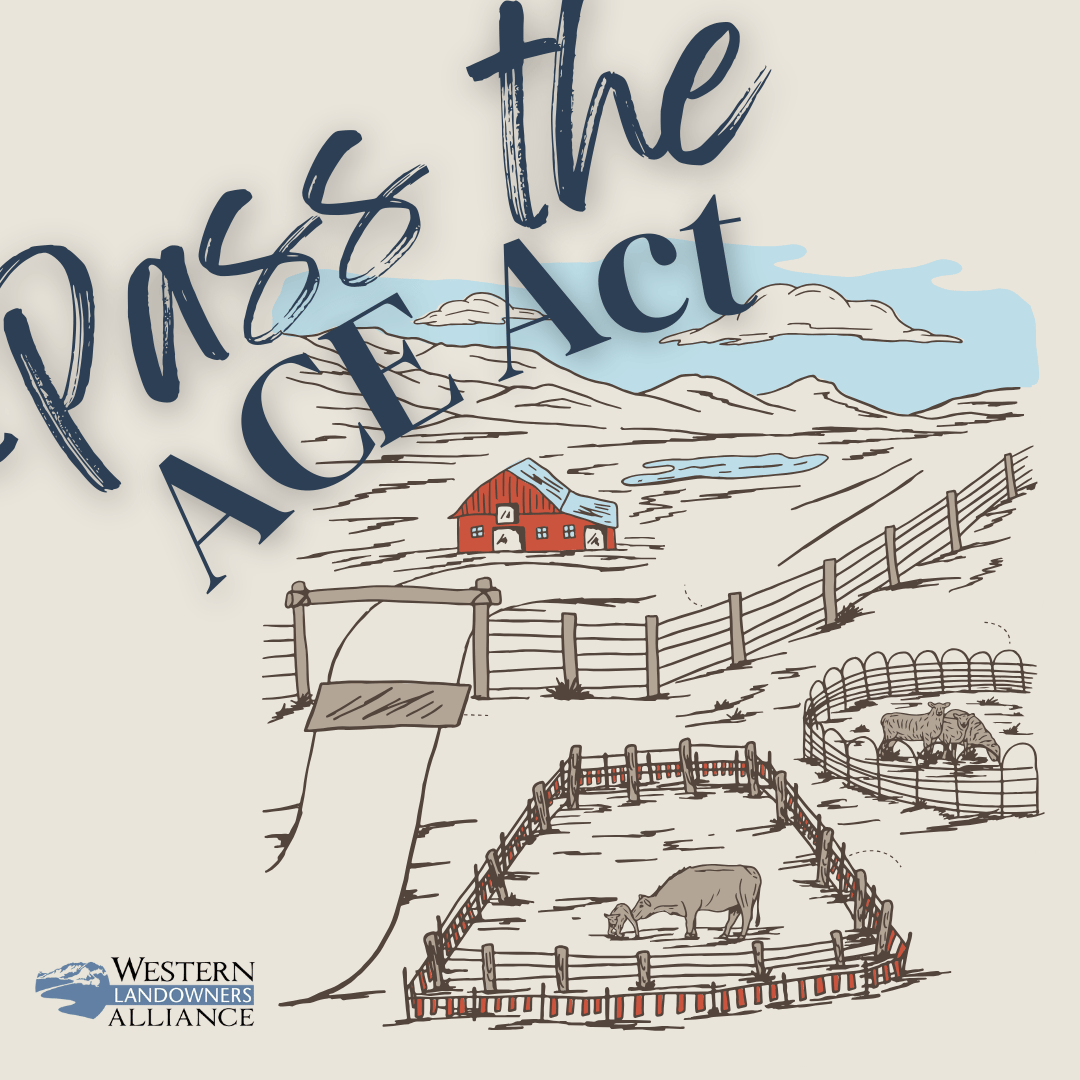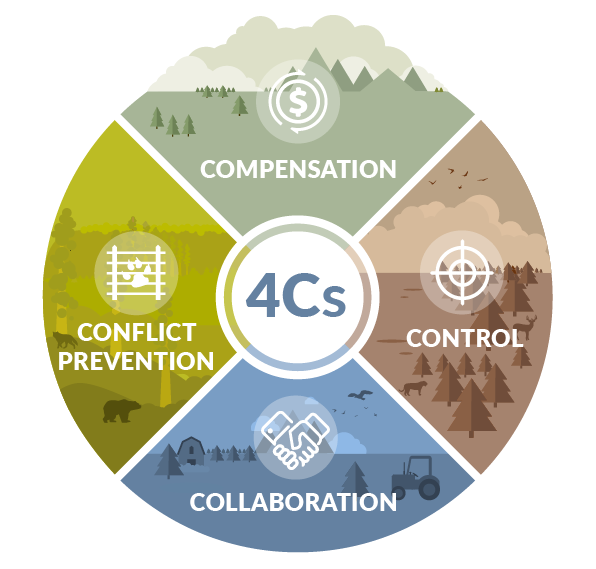Summary
ACE Act provides opportunity to fund wildlife conflict reduction nationwide
Across the United States, iconic wildlife like grizzly bears, wolves, and other endangered and threatened species share lands and waters with humans and incur costs to livestock production and other resource-based livelihoods. Grizzly bears and wolves depredate and stress livestock. Golden eagles prey on lambs. Seals compete with fisherman for valued catch.
Given the expanding range and population of such species, including reintroduction efforts of large carnivores throughout their historic range, the need for additional wildlife-livestock conflict prevention work and depredation compensation is rapidly increasing. At the same time, federal funding to support non-lethal conflict prevention work and supplement state-level livestock depredation compensation funds has remained relatively flat, and nowhere near enough to meet the demand.
This is evident in the Wolf Livestock Loss Demonstration Project Grant Program (“Tester Funds”) administered by the U.S. Fish and Wildlife Service (FWS) authorized in 2009, which continues to receive only $1 million annually in funding. This program provides grants to state agencies to administer non-lethal conflict prevention techniques, and supplement existing state programs that compensate producers for livestock loss, but is often nearly fully expended in only a handful of western states, while being species specific to wolves. Recognizing that this annual appropriation falls well short of the need, Congress authorized the Grant Program in the America’s Conservation Enhancement Act of 2020.
The “Grant Program for Losses of Livestock Due to Depredation by Federally Protected Species (Grant Program)” within the American Conservation Enhancements (ACE) act, if fully funded, would provide $15 million annually through Fiscal Year 2025 for state-implemented compensation and conflict prevention programs.
We envision landscapes where people and wildlife can thrive, where effective and practical management practices work in concert with constructive state and federal policy to reduce conflicts, and where economic solutions support resilient, productive and biologically diverse working lands.
Durable conservation of species important to the American public requires wildlife management strategies that are informed by and supported by those living in wild and working landscapes. Building that support requires funding on the ground, and it also requires capacity in state and federal agencies. Added capacity provided through the Grant Program to implement non-lethal conflict prevention methods will benefit people and wildlife, bringing us closer to our vision of healthy, connected landscapes and vibrant livelihoods.

Take Action
Let Congress know you support the ACE Act!
Frequently Asked Questions
Question
What agencies will be able to apply for this funding?
State Fish and Game agencies
State livestock loss boards or wherever this authority is housed to administer damage compensation programs
State departments of agriculture, depending on eligibility and structure of depredation compensation funds
If cooperative agreement is in place, then potentially United States Department of Agriculture Wildlife Services (USDA WS) at state-level
Question
How does this opportunity Interact with Tester Funds?
Tester funds will likely sunset if the ACE act is funded, though there is no explicit requirement in statute for this to be the case. However, in spirit, this is a renewal and modernization of the Tester Funds that captures both the expanded funding need and increased range of species conflicts beyond wolves.
Question
What wildlife species will these funds be eligible to cover?
While the Tester funds only cover wolves, the ACE act covers federally managed species and federally recovered species is covered as well, opening up funding for grizzly bear conflicts and certain avian conflicts for sheep producers
This funding holds nationwide significance and can support any state experiencing conflicts with federally endangered or delisted species.
Question
Who will these funds be administered through?
The USDA or the Department of the Interior (DOI) in coordination are authorized to administer funding.
These funds would likely be administered through the Fish and Wildlife Service due to institutional memory in administering Tester funds and the nexus with the Endangered Species Act. USFWS administers the Tester funds and this would follow precedent.

Keys to Successful Wildlife Policies
From the 3 S's to the 4C's
Wondering why livestock-loss compensation is so important? It is one of the Four C's of conflict reduction. We envision landscapes where people, livestock, and wildlife all thrive, where effective and practical management practices work in concert with constructive state and federal policy to reduce conflicts, and where economic solutions support resilient, biodiverse working lands. The clearest path to this vision is the 4C’s framework.
“To waste, to destroy our natural resources, to skin and exhaust the land instead of using it so as to increase its usefulness, will result in undermining in the days of our children the very prosperity which we ought by right to hand down to them amplified and developed.”
- Theodore Roosevelt
Join WLA to stay up to date on the most important news and policy for land stewards.
Become a member for free today and we will send you the news and policy developments critical to the economic and ecological health of working lands.
WLA works on behalf of landowners and practitioners throughout the West. We will never share your contact information with anyone.
©2026 Western Landowners Alliance • PO BOX 27798, Denver, CO 80227 • 505.466.1495
Western Landowners Alliance is a 501 (c)(3) non-profit recognized by the IRS.
Tax ID: 46-1346488